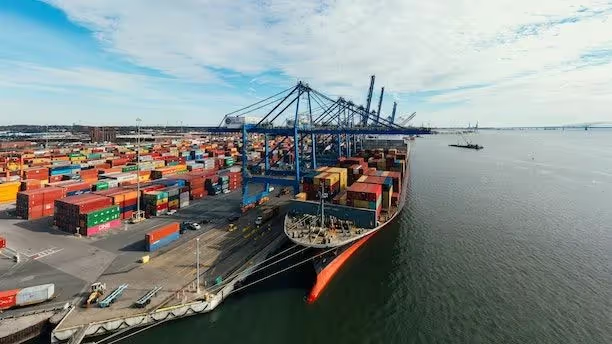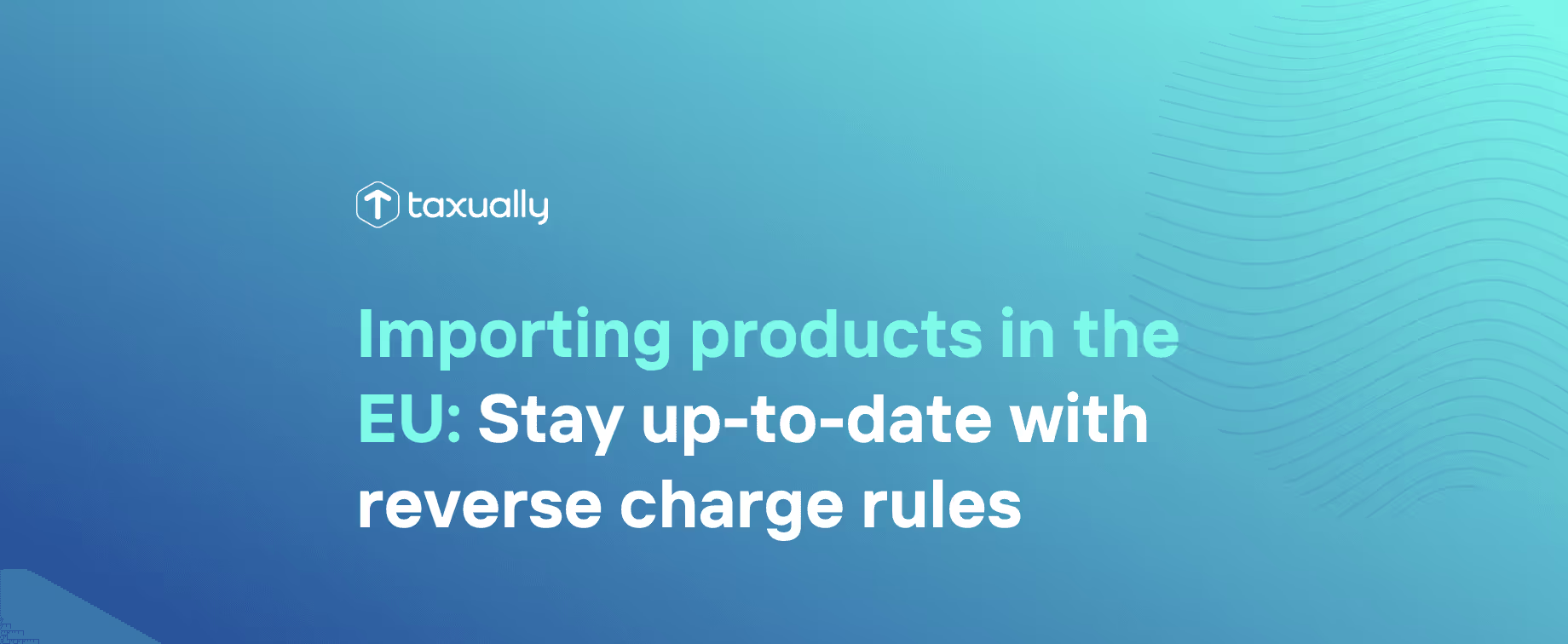Key takeaways
- The reverse charge for import VAT allows businesses to declare and deduct import VAT directly on their VAT return, avoiding upfront VAT payments at customs.
- This mechanism improves cash flow and simplifies administration, helping companies reduce manual processes and disputes with foreign suppliers.
- Businesses importing goods into countries like France must comply with local VAT registration and reporting rules, as failure to apply the reverse charge correctly can lead to financial penalties.
The reverse charge mechanism for import VAT is a tax arrangement implemented by the EU to streamline international trade operations. In this article, we will delve into the workings of the reverse charge for import VAT and explore its benefits for businesses.
How Does the Reverse Charge for Import VAT Work?
The reverse charge for import VAT (or so-called ‘postponed accounting of import VAT’) enables businesses to circumvent the payment of VAT on imported goods by declaring and directly paying the VAT to the tax authorities. Under this scheme, when a taxable business imports goods from a third country, it must declare the VAT due to the tax authorities directly on the VAT return. The business or importer then collects the VAT amount directly from the tax authorities based on this import and immediately deducts it on the same return, following the reverse charge principle.
Benefits of the Reverse Charge for Import VAT for Companies
The reverse charge for VAT on imports offers numerous advantages to businesses engaged in importing goods from third countries:
- Cash Flow Savings: Businesses can avoid immediate payment of import VAT, resulting in significant cash flow savings. This allows businesses to allocate funds to other aspects of their operations instead of having to raise additional capital specifically for import VAT payment.
- Streamlined Administrative Procedures: The reverse charge for VAT on imports simplifies administrative procedures for businesses. They can directly declare and pay VAT to the tax authorities, facilitating the monitoring of their tax obligations.
- Reduced Disputes with Foreign Suppliers: By paying VAT directly to the tax authorities, companies can minimize conflicts related to VAT, payment methods, and supporting documents required for VAT deductibility. This helps reduce the risk of disputes arising with foreign suppliers.
Application of the Reverse Charge for Import VAT
To benefit from the reverse charge for VAT on imports, companies must comply with specific conditions that vary depending on the country's implementation. Most EU countries already apply such reverse charge regimes in one form or another – either as an optional regime, or only applicable under certain conditions, or fully mandatory for certain/all businesses.
That is exactly why your business should stay up-to-date with all reverse charge rules on imports across the EU. If you import products in an EU country that applies the reverse charge regime on a mandatory basis, you would be obliged to register for VAT purposes in that country and comply with all local VAT compliance and reporting rules there.
An interesting example is the reverse charge regime on imports applied in France. In France, this regime is automatically and mandatorily applied when:
- The business is subject to VAT and capable of declaring and paying VAT to the tax authorities through periodic returns.
- Goods are imported into Europe from non-EU countries.
- The imported goods are released for consumption in France as part of the taxpayer's economic activity.
It's essential to note that the reverse charge for VAT on imports does not apply to goods transported from other EU countries, as they fall under the intra-community VAT regime.
The implementation of the reverse charge mechanism for French B2B imports aims to simplify VAT management and collection for businesses importing goods and for the French tax authorities.
However, the mandatory application of that regime also means that if your business imports products in France under the above conditions, it would need to obtain a VAT registration in France and comply with all VAT compliance and reporting rules in France.
Failure to apply the reverse charge mechanism can have consequences. As mentioned, a French VAT number is necessary for every B2B shipment to clear customs using the reverse charge method, and non-compliance may result in a penalty of 5% of the VAT amount that was not reverse charged in case of a tax audit
The mandatory reverse charge for importing goods in France brings several benefits:
- Quicker VAT Reclaim: Previously, businesses had to reclaim import VAT through their VAT return or utilizing the 13th Directive. However, with the reverse charge implementation, French Customs authorities directly communicate with the tax authority, reducing the return period and improving business cash flow.
- Reduction in Manual Reporting Processes: By utilizing the reverse charge, importers can collect and deduct import VAT simultaneously, eliminating the need to pay the carrier and then request a refund on their income tax. Additionally, since the French recipient pays import VAT directly to the tax authority, there is no longer a requirement to file separate VAT returns.
Customs Formalities to Consider

Adherence to customs formalities and VAT regulations is crucial to avoid penalties or disputes with tax and customs authorities. In addition to meeting the conditions for the reverse charge for VAT on imports, importers must adhere to relevant customs procedures. Importing goods from third countries entails obligations for customs declarations, including declaration to customs, payment of customs duties and taxes, and import taxes.
Moreover, the reverse charge for VAT on imports does not exempt companies from maintaining accurate accounts and retaining supporting documents related to imported goods. These records should be preserved for at least ten years from the transaction date.
Businesses must also exercise caution in complying with VAT regulations, particularly regarding the application of VAT rates depending on the imported goods and their destination.
Frequently asked questions
New Year's Day - 1/1/2024Memorial Day - 5/27/20244th of July - 7/4/2024Labor Day - 9/2/2024Thanksgiving Day - 11/28/2024Day after Thanksgiving - 11/29/2024Christmas Eve - 12/24/2024Christmas Day - 12/25/2024
What is the reverse charge for import VAT?
The reverse charge for import VAT, also called postponed accounting, allows businesses to declare and pay import VAT directly on their VAT return instead of paying it upfront at customs. This helps improve cash flow and simplifies VAT compliance for companies importing goods into the EU.
How does the reverse charge for VAT on imports work in France?
In France, the reverse charge on import VAT is mandatory for VAT-registered businesses importing goods from non-EU countries. The importer declares and deducts VAT on the same return, meaning no upfront VAT payment is required at customs. A valid French VAT number is necessary to use this mechanism.
What are the benefits of using the reverse charge for import VAT?
The reverse charge system improves business cash flow by avoiding advance VAT payments, reduces administrative burden, and minimizes disputes with foreign suppliers. It also speeds up VAT recovery and streamlines reporting by allowing simultaneous declaration and deduction of VAT.



















